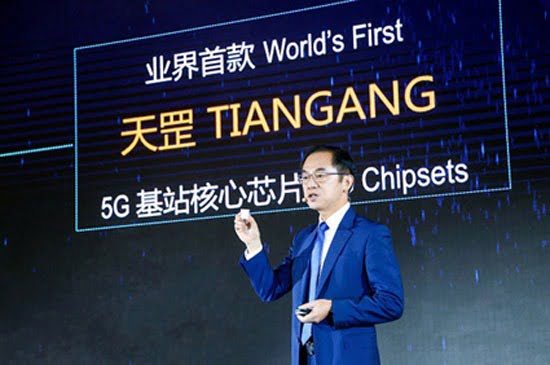
Washington is trying to brake the global expansion of Chinese-origin 5G communications technology, codenamed Huawei. Right now Huawei is far ahead of every competitor worldwide: not just in research but in “ready, end products.” It can sell everything involved, from antennas and the necessary software to the technology for mobile phones and other devices. (It has already sold 25,000 5G base stations worldwide.) Just this past late January it also announced the production of a key chip designed specifically for 5G stations. It calls it tiangang.
Washington accuses the Chinese company of being able to spy on everyone who will use its technology – and this is the U.S. argument to persuade allied states (and their telecom companies) not to move to the 5G phase, to stay stuck until some American firm manages to sell them the relevant networks… Indeed, espionage is quite likely. Only Washington is telling half the truth. Huawei’s head-start in this (central) field of the 4th industrial revolution has been known for some time. The U.S. state could have tolerated it if Huawei had agreed to the NSA’s demand to be given “covert access” to the company’s 5G networks. In other words, if it had accepted U.S. spying. It refused – and so the war began.
In 2014 Snowden revealed that as early as 2010 the NSA had managed to “break into” Huawei’s corporate servers and was monitoring the company’s internal communications. But, apparently, the American state-security experts still cannot do the same with 5G…
So, behind the obvious trade war lies a far more serious one: the war for surveillance, control, and espionage. And in order for the U.S. state to admit that, for now, it has missed this train too, it throws itself onto the tracks in an attempt to stop it…
